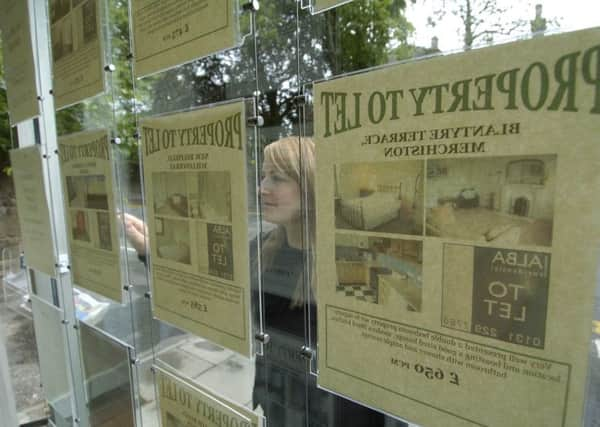Change in rules for short-term letting mustn’t kill off the tourism boom – John Blackwood


With the influx of tourists arriving on our shores this summer, there is a lot of talk about Airbnb and short-term letting. We have all seen the image of the Edinburgh doorway with the multiple-key lock boxes, which now seems to be the poster image of short-term letting, so the question of regulation is a hot topic.
Tourism is growing in Scotland, and with its excellent scenery, food and culture, this is only going to increase over the next 10-15 years. Along with that, the demand for accommodation is also on the rise. In fact, during 2016/17, 36 per cent of tourists who visited Edinburgh, stayed in self-catering accommodation. It’s not just Edinburgh that has seen the rise in demand either: Glasgow, the Highlands, Argyll & Bute and Fife have also been feeling the effect of this.
Advertisement
Hide AdAdvertisement
Hide AdQuestions over the rise in short- term letting versus the social impact such as the housing market concerns, anti-social behaviour and tax avoidance have been inevitable. When the Association of Scotland’s Self-Caterers (ASSC) commissioned the report ‘Far More than Just Houses: The Benefits of the Short-Term Rental Sector to Scotland’, it addressed these issues. There is a housing crisis in Scotland, yet can short-term letting be accused of exacerbating the problem? Scotland’s population is at its highest level and is expected to grow. It would be easy to blame Airbnb and similar models for the growing issue of the lack of social and affordable housing, and certainly statistics like the one saying that in Edinburgh alone there is one Airbnb property for every 42 people can bring a sense of negativity. However, when you delve deeper into the wider problem of the housing crisis, 79,000 homes are sitting empty across Scotland and with the number of social housing units being completed dropping off so badly, the issue has to be put into perspective. There has been a longstanding problem in the housing sector.


It has also been suggested that with the rise in short-term lets has come an accompanying increase in anti-social behaviour. From the results shown in the ‘Far More than Just Houses’ report, Scottish local authorities have only reported a slight increase in anti-social behaviour from short-term lets but have not thought the rise to be a cause for concern as the number of complaints are small.
Like many providers, most short-term operators, associations and platforms are responsible and have set code of conduct rules to adhere to. The ASSC’s code of conduct, for example, includes rules giving clarity on rubbish and recycling and the maximum numbers of guests. They also insist on noise restraint for late arrivals and must provide local authorities with contact details in regard to complaints. Airbnb also set their own code of conduct such as a ‘three-strike policy’. Under this, those who have received multiple complaints from local authorities will be either suspended or banned from using the service. Other operators also provide advice and best practice support as they want to protect their investment, reputation and know they need to be proactive in addressing further challenges.
Further negativity surrounding the short-term letting sector has been the issue of hosts avoiding tax. The ‘Far More than Just Houses’ report found that there is no evidence that this is taking place. Of those traditional short-term rental operators, 81 per cent pay business rates and the rest are paying some form of tax, including council tax. As for the Airbnb model, from the data provided, most rentals are under the 140-day limit so are paying council tax for these properties.
There have been some interesting suggestions on curtailing and regulating this model and moving forward. Although Scotland has no regulatory framework either nationally or locally, it is worth looking at how our European friends have embraced and managed this sector, in particular the Netherlands and Denmark, whose governments are taking the lead and actively providing support. That is not to say that there hasn’t been concern in Europe, but looking at our neighbours may help us establish the right course of regulation. The ASSC report accepts that there needs to be regulation and the Scottish Association of Landlords (SAL) fully supports and welcomes this. However, we all need to work together to ensure the right regulation is in place and proportional to prevent an adverse effect on our tourism sector, which is a vital component to the Scottish economy, bringing in £5.5bn in 2017/2018.
The Scottish Government has recently launched a consultation on short-term lets, which closes in the middle of this month, so it will be interesting to see what they find, how this develops and what course of action will ensue.
John Blackwood is the chief executive, Scottish Association of Landlords (SAL).